#andrew ralston
Text


Andrew 🫶
#my art#fnaf fazbear frights#fnaf#fazbear frights#five nights at freddy's#five nights at freddys#fnaf andrew#fnaf andrew ralston#andrew ralston#fnaf au#my au#change of heart au
47 notes
·
View notes
Photo









#nope#nope 2022#jordan peele#nopeedit#daniel kaluuya#keke palmer#brandon perea#michael wincott#steven yeun#jacob kim#andrew patrick ralston#jennifer lafleur
321 notes
·
View notes
Text

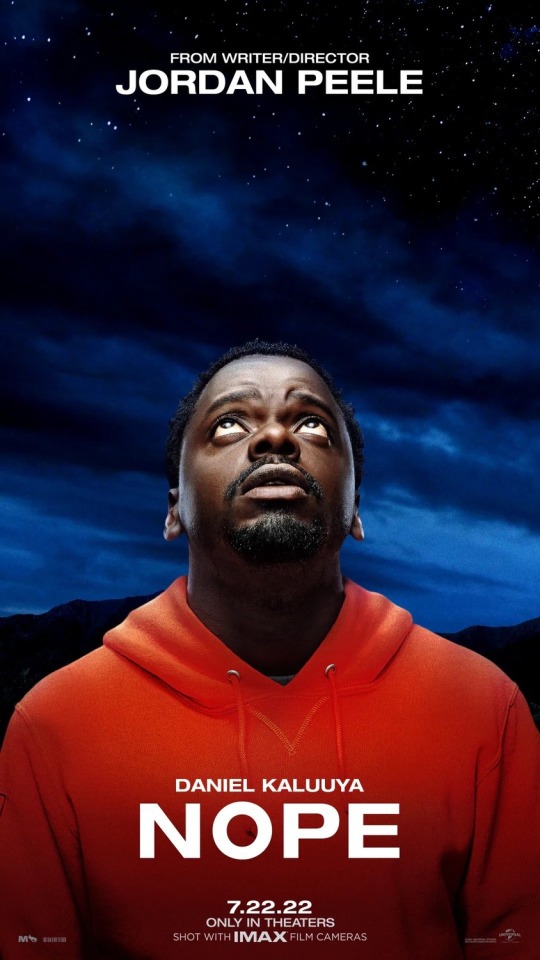
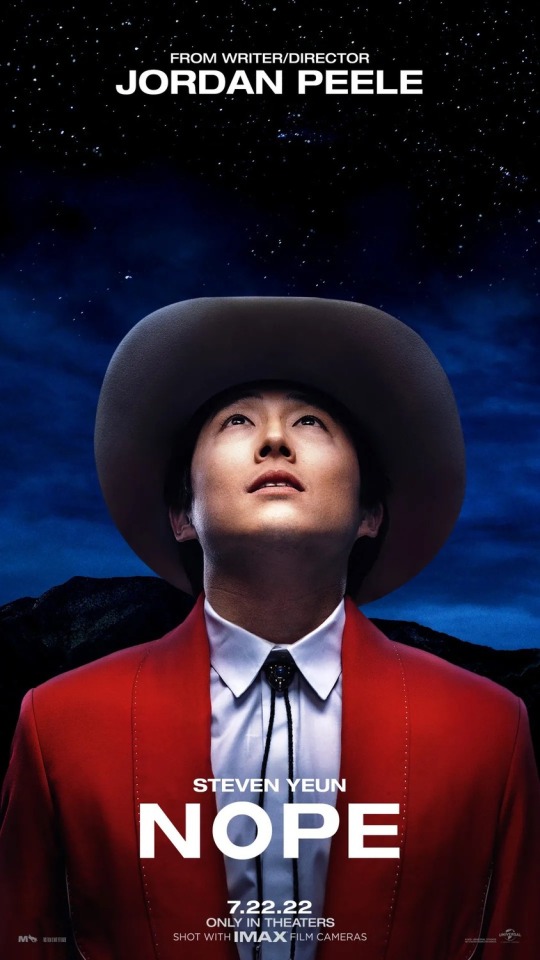

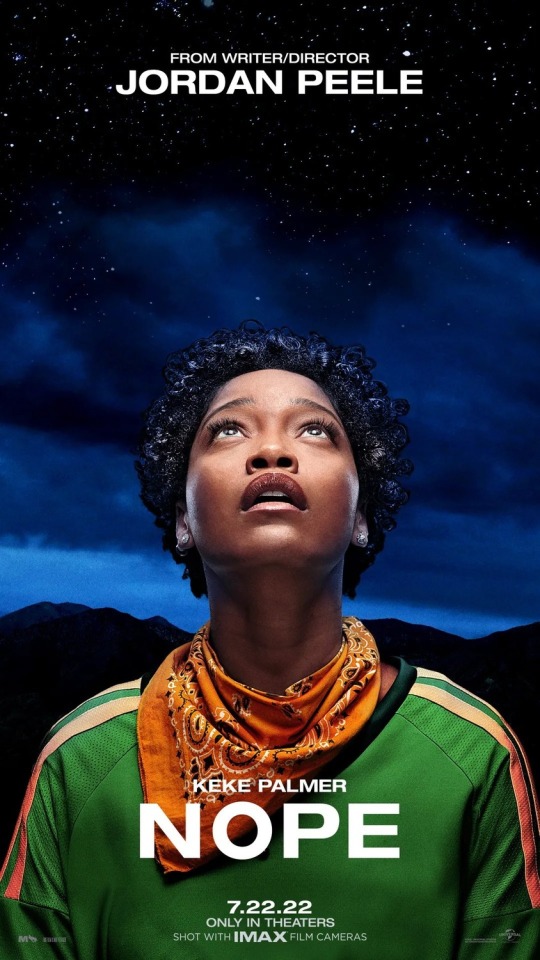
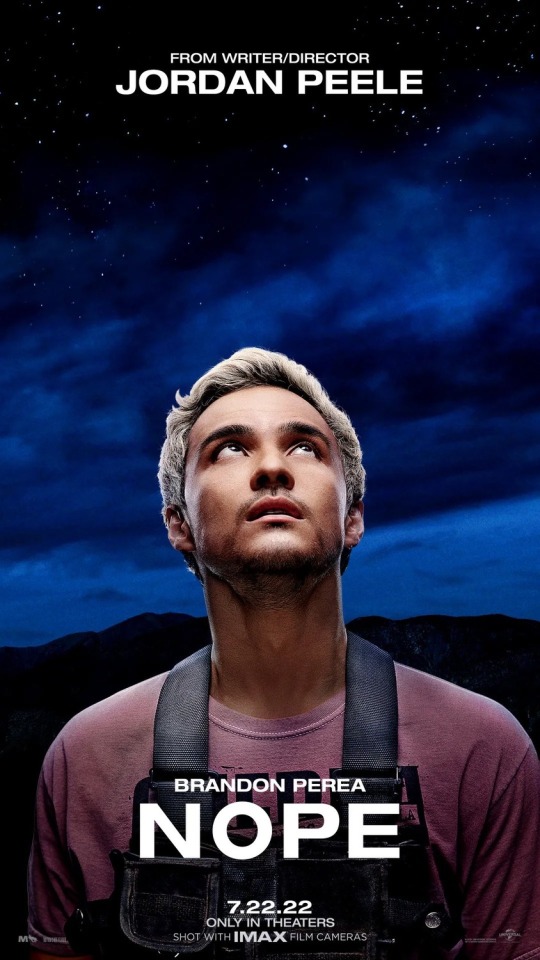
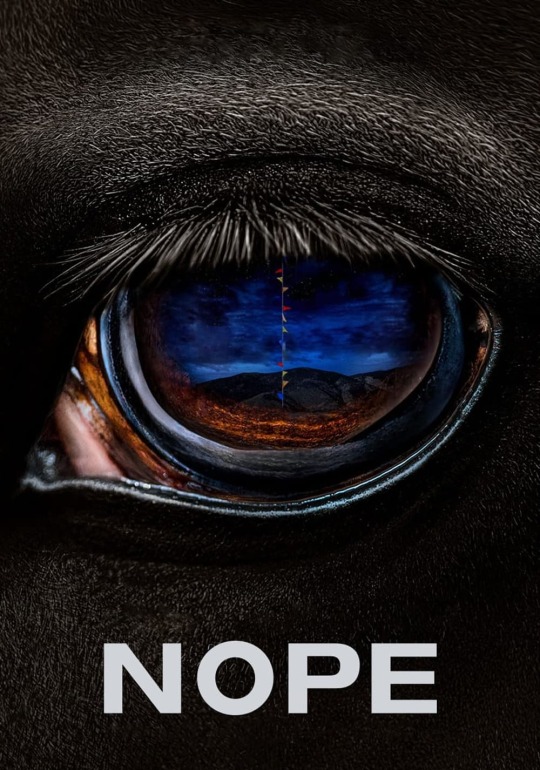
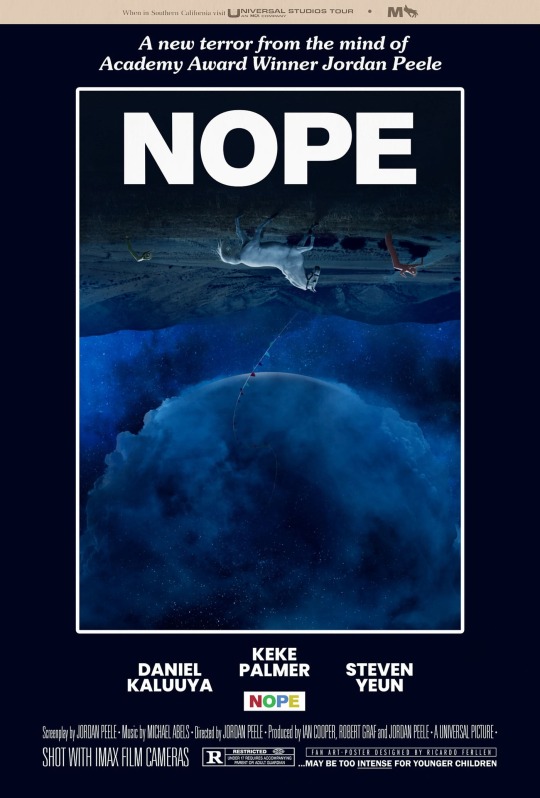

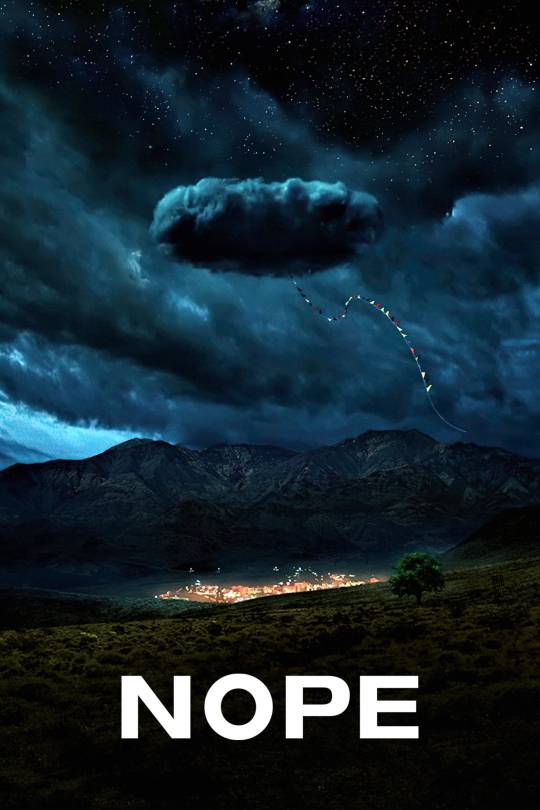
W A T C H I N G
#NOPE (2022)#Jordan Peele#Daniel Kaluuya#Keke Palmer#Steven Yeun#Michael Wincott#Brandon Perea#Keith David#Terry Notary#Devon Graye#Donna Mills#Osgood Perkins#Eddie Jemison#Jennifer Lafleur#Andrew Patrick Ralston#Wrenn Schmidt#Barbie Ferreira#WATCHING#sci-fi#horror
15 notes
·
View notes
Text
¡Nope! … Adiós Vaquero
¡Nope! … Adiós Vaquero
Justo hace 20 años (¡ah caray como pasa el tiempo!), se estrenaba en las carteleras una cinta llamada Señales, que en aquel entonces fue todo un hito, una revolución en lo que se refería al tema de extraterrestres, una producción que sin duda alguna marcó un antes y un después y que nadie pudo superar. 20 Años después llega su digno sucesor.
(more…)

View On WordPress
#Andrew Patrick Ralston#Barbie Ferreira#Brandon Perea#Conor Kowalski#críticas#critica#Daniel Kaluuya#Donna Mills#Jennifer Lafleur#Jordan Peele#Keke Palmer#Michael Wincott#NOP#NOPE#Ryan W. Garcia#Sophia Coto#Steven Yeun#Terry Notary
1 note
·
View note
Text
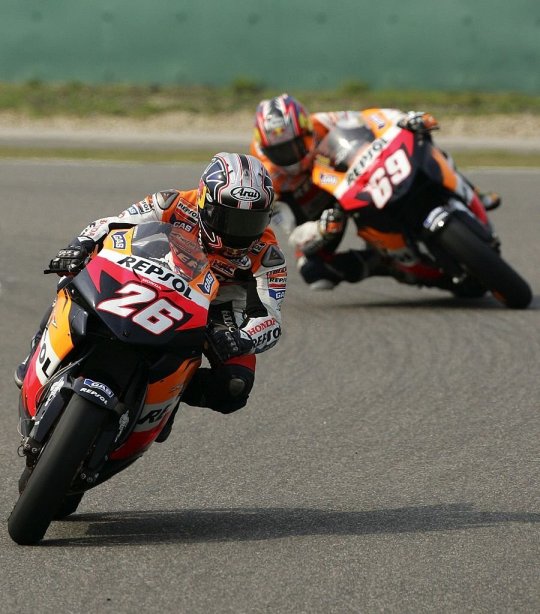


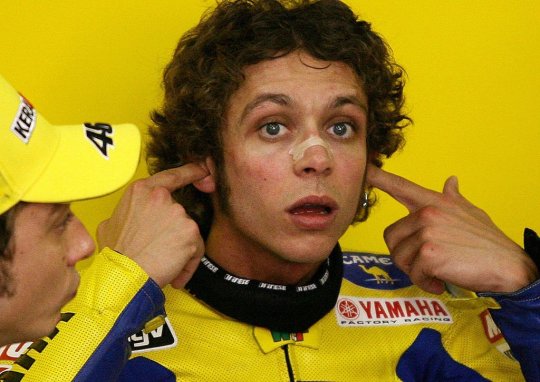
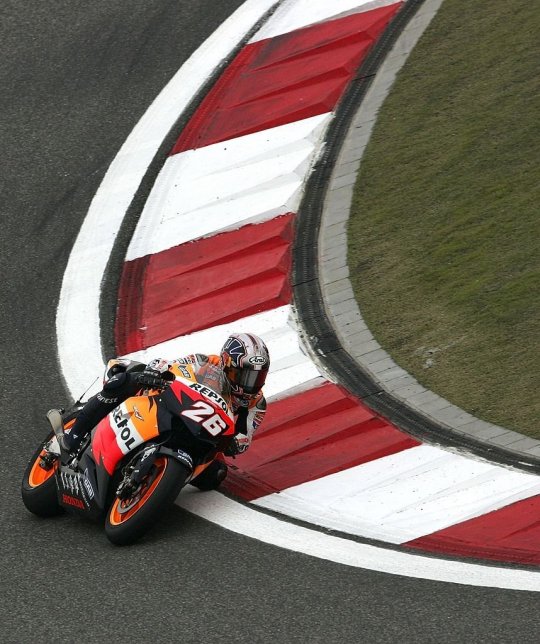
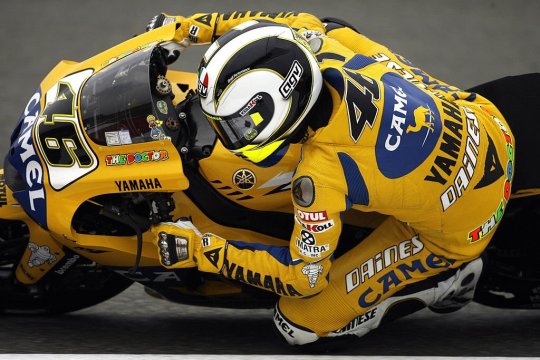
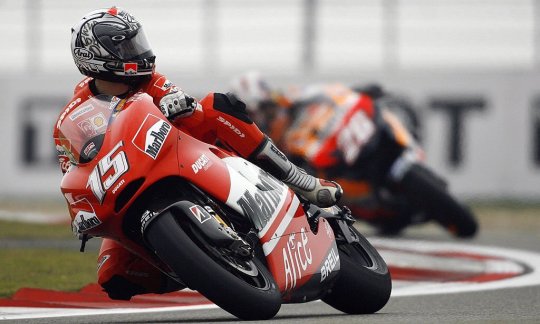


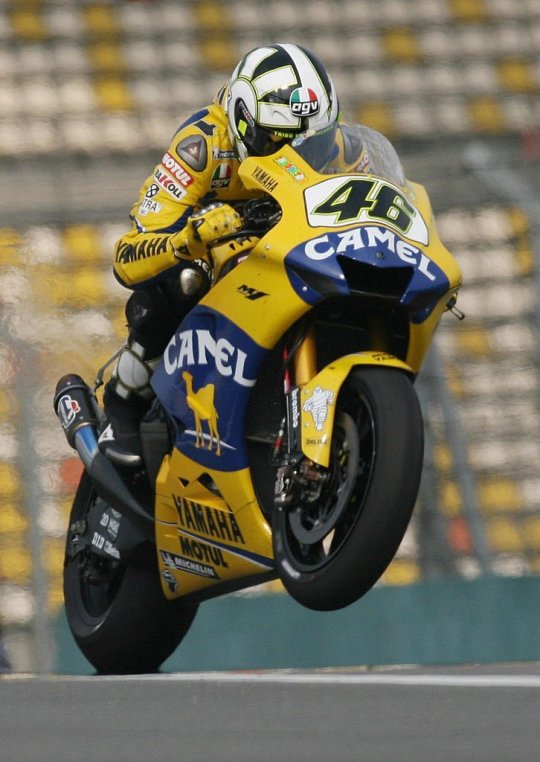
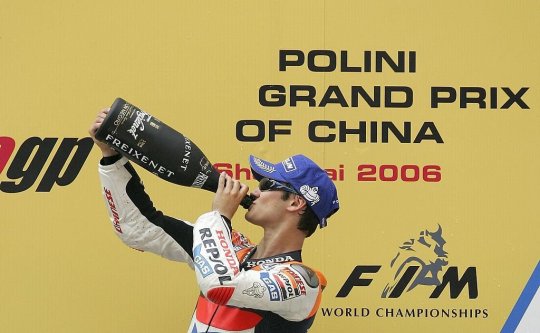

impressions from the 2006 chinese gp
1: Winner Dani Pedrosa leads teammate Nicky Hayden (photo by Andrew Wong)
2: Dani Pedrosa of Spain reacts after winning his first ever MotoGP race (photo by Peter Parks/AFP)
3: Sete Gibernau of Spain takes a corner past the grandstand in the third practise session (photo by Peter Parks/AFP)
4: Valentino Rossi reacts in the Team Camel Yamaha pits during the qualifying session (photo by Mark Ralston/AFP)
5: Dani Pedrosa during the qualifying session (photo by Andrew Wong)
6: Valentino Rossi takes a corner on his way to thirteenth position during the qualifying session (photo by Peter Parks/AFP)
7: Sete Gibernau of Spain looks round at compatriot Dani Pedrosa in the third practise session (photo by Peter Parks/AFP)
8: Dani Pedrosa celebrates on the podium after winning the MotoGP of China race (photo by Mark Ralston/AFP)
9: John Hopkins takes a corner on his way to second position during the qualifying session (photo by Peter Parks/AFP)
10: Valentino Rossi does a wheelie before retiring from the MotoGP of China race (photo by Mark Ralston/AFP)
11: Dani Pedrosa celebrates on the podium after winning the MotoGP of China race (photo by Mark Ralston/AFP)
12: Valentino Rossi of Camel Yamaha Team starts the qualifying session (photo by Andrew Wong)
all via getty images.
#the captions are short forms of the getty images captions#the 10th one is v funny to me tell me in tags if u read it heheh#chinese gp 2006#motogp#trips down motogp lane#dani pedrosa#valentino rossi#sete gibernau#john hopkins
68 notes
·
View notes
Text
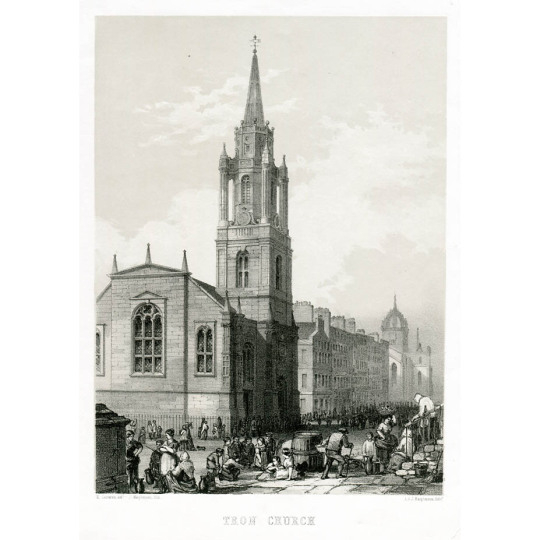





On the hour leading up to midnight on Hogmanay, 1811 and into New Years day a riot occurred in Edinburgh, now knowns as the Tron Riot.
Edinburgh in the early 19th century was a time of heightened tension between the crowded Old Town and the wealthier New Town, founded in 1767. This architectural separation made the division of classes more pronounced. Conflicts, riots and social unrest were common in Scotland at the time.
The Old Town was home to many youth gangs, one of which was the Keely Gang (also known as the Niddly Gang), led by Hugh McDonald and Hugh McIntosh. The police were given more powers, which was particularly hostile to the poor. Petty crimes committed by gangs like the Kelly family were increasingly suppressed by the authorities.
It was a tradition for New Town residents to come to the Old Town to celebrate Hogmanay in the streets around Tron Church, a tradition that still existed until recently then at the time The Tron was the parish church, and the bells there brought in the New Year.
After midnight, crowds moved through the area, heading to a friend's house as part of a fast-footing custom. According to later trial testimony, the Keeley Gang planned to take advantage of the wealthy crowds of the New town Hogmanay during the final weeks of 1811 while simultaneously attacking the police.
On December 31st, members of the Keeley Gang began attacking passersby. - On the streets of the Old Town from around 11pm. Victims were surrounded, threatened, and in some cases knocked to the ground and robbed by young men with wooden sticks. A town watchman named Dugald Campbell was attacked by a group of young men at Stamp Office Close off High Street. He was beaten with a stick and left to die. Apparently Campbell was known to the gang, and they hated him. It was later claimed that they planned to "lick him on the last night of the year if we could catch him." Campbell was taken to the Royal Infirmary and died of his injuries on January 3rd.
A bounty of 300 guineas was offered by the town council for information leading to the arrest of the attackers. Victims and witnesses described many of the rioters as "boys" and "young people." By the end of the month, 68 youths had been arrested, none of them over the age of 20. They were described as "a band of lazy apprentices". The primary perpetrators are believed to be John Skelton, Hugh McIntosh (16), Hugh McDonald (18) and Neil Sutherland (18). Skelton was convicted of attempted robbery, and McIntosh, McDonald, and Sutherland were convicted of planning a riot and conducting a raid. McIntosh was also found guilty of the murder of Dugald Campbell. All four were sentenced to death along with James Johnston, who was never arrested.
Skelton's sentence was later commuted to life transportation due to his previous good character. On April 22nd, McIntosh, Sutherland, and MacDonald were hanged near the stamp office. Mackintosh's body was sent for autopsy, and Sutherland and MacDonald were buried in Greyfriars Church.
According to historian Andrew Ralston, the Tron riots sent a strong message about juvenile delinquency and were used to deter other would-be criminals.
In addition to the three people sentenced to death, several of the lesser offenders of the riot received relatively harsh sentences for their crimes. Lord Gillies hoped that these punishments "would not affect the youth of the city, but would be a means of making them disgust with acts such as those recently committed here."
After the riots, authorities quickly took steps to reorganize and strengthen. police force. Later that year, the Edinburgh Police Act 1812 was introduced, greatly increasing the number of police officers patrolling the city.
17 notes
·
View notes
Text

Bisan Owda is a journalist in Gaza that keeps updating about the barbaric genocide actions that israel committed with weapons supplied mainly by US, all the while living through that genocide itself.
Over 30k+ has been killed, and over 15k+ of those are children and babies.
The celebs and artists who wanted to rescind Bisan's nomination are as follow:

Ari Ingel, Executive Director, Creative Community for Peace
David Renzer, Former Chairman/CEO Universal Music Publishing Group, CCFP Chairman & Co-Founder
Steve Schnur, Worldwide Executive & Music President, Electronic Arts, CCFP Co-Founder
Rakefet Abergel, Actor/Director, Cyclamen Films
Orly Adelson, Former President of ITV Studios, America
Marty Adelstein, CEO, Tomorrow Studios
Anne-Marie Asner, Co-Founder, Animation Israel
Jeff Astrof, TV Producer/Showrunner, Other Shoe Productions
Michael Auerbach, Partner, Jackoway Austen Tyerman Wertheimer Mandelbaum Morris Bernstein Trattner Auerbach Hynick Jaime LeVine Sample & Klein
Dean Bahat, Attorney, Ziffren Brittenham
Andrea Ballas, VP Comms, CBS
Jackie Barrie, A&R Manager, Nvak Collective
Richard Baskind, Partner & Head of Music, Simons Muirhead & Burton
Aton Ben-Horin, Executive VP of Global A&R, Atlantic Records Group
Steven Bensusan, President, Blue Note Entertainment Group
Adam Berkowitz, Founder and President, Lenore Entertainment Group
Sharon Bialy, Casting Director, Bialy/Thomas & Associates
Josh Binder, Co-Founder and Partner, Rothenberg Mohr & Binder, LLP
Neil Blair, Founding Partner, The Blair Partnership
Selma Blair, Actress, Author, Advocate, Sainted Productions
Rebecca Blumberg, SVP Ad Sales, Paramount
Evan Bogart, Songwriter & CEO, Seeker Music
Benjamin Budde, CEO, Budde Group GmbH
Bruce Burger, Producer, RebbeSoul
David Byrnes, Attorney, Ziffren Brittenham
Civia Caroline, Social Impact Consultant, CLiC Impact
Pamela Charbit, Director of A&R, Warner Music Group
Emmanuelle Chriqui, Actor, Yellow Ray Entertainment
Leanne Coronel, Talent Manager, The Coronel Group
Raye Cosbert, Managing Director, Metropolis Musi
Paul Craig, Ceo, Nostromo Management
Doug Davis, NATAS Member, 2x Emmy winner, The Davis Firm
Rebecca De Mornay, Actor
Jamie Denbo, Co-Executive Producer, Grey’s Anatomy, ABC/Disney
Josh Deutsch, Chairman/CEO, Premier Music Group
Avi Diamond, Director, Film/TV Sync, Warner Music Canada
Craig Dorfman, President and Owner, Frontline MGMT
Rachel Douglas, Manager, Range Media Partners
David Draiman, Frontman, Disturbed
Jeremy Drysdale, Screenwriter, bigbamboo
Craig Emanuel, Ryan Murphy Productions
Hannah Epstein, Agent, CAA
Rami “Kosha dillz” Even-Esh, Rapper/Comic/Actor
Lindsay Fabes, Actor
Ron Fair, Record Producer & CEO, Faircraft Inc.
Sharon Farber, Composer, Score by Score Music
Danny Federman, Owner, Maccabi Tel Aviv Basketball Club
Eric Feig, Attorney and TV Academy Member, Feig/Finkel
Patti Felker, Attorney, Felker Toczek Suddleson McGinnis Ryan LLP
Ken Fermaglich, Partner, United Talent Agency
Ross “Remedy” Filler, Artist
Shalom Fisch, President, MediaKidz Research & Consulting
David Fishof, CEO, RRFC Films, LLC
Siri Garber, Publicist, Platform
David Gardner, President, Artists First
Barbara Garshman, CEO, Garshman Productions LLC
Gary Gersh
Gary Ginsberg, Senior VP, SoftBank Group Corp.
Brian Ralston, Composer/Producer, Studio 74 Music, LLC
David Glick, Founder & CEO, Edge Group
Zusha Goldin, Celebrity Photographer, Zusha Goldin
Michael Goldwasser, President, Easy Star Records
Andrew Gould, President, Music Publishing
Scott Greenberg, Partner, LBI
Steven Greenberg, Founder and President, S-Curve Records
Daniel Grindlinger, Writer
Ronnie Harris, Partner, Harris & Trotter
Michael Hirschhorn, Manager, Streaming and Sales, Atlantic Records
Linda Edell Howard, Attorney, Novick Law
Rich Ingram, Artist/Creator
Neil Jacobson, Former President, Geffen Records, Founder & CEO of Hallwood Media
Michael Kaplan, Writer/Producer
Sam Katz, Music Manager, Homebase MGMT, LLC
Zach Katz, CEO & Co-Founder, Fixated
Ketura Kestin, Film Producer, Serendipity Productions
Amanda Kogan, Manager, Aaron Kogan Management
Keetgi Kogan Steinberg, Writer/Producer/Showrunner
Jason Kozel, Creative Executive, Range Media Partners
Rick Krim, CEO, Krim Music + Media
Evan Lamberg, President, North America, Universal Music Publishing Group
Sherry Lansing, Former CEO, Paramount Pictures
Colin Lester OBE, Founder/Chairman, JEM Music Group
Sean Liebowitz, Agent
Koura Linda, Founder & CEO, Space Dream Productions
Marci Liroff, Intimacy Coordinator/Casting Director
Cory Litwin, Managing Partner, Range Media Partners
David Lonner, CEO, The David Lonner Company
Ben Maddahi, President, Unrestricted Publishing & Mgmt
Gabriel Mann, Composer
Deborah Marcus, Executive, CAA Foundation
Susan Markheim, Full Stop Mgt., The Azoff Company
Amanda Markowitz, Actor/Producer, SAG/AFTRA & PGA
Orly Marley, President, Tuff Gong Worldwide
Devra Maza, Screenwriter
Debra Messing, Actor/Producer
Hilary Michael, Agent and Partner, WME
Beth Milstein, Writer
Jennifer Morrow, Actor, CAA
Patrick Moss, Writer, Moroccan Boychik
Robert Munic, Writer/Showrunner, Pull The Pin Productions, Inc.
Lisa Nupoff, Manager, iminmusic management
Scott Packman, Founder and Managing Member, SSP Partners LLC
Mark Pinkus, President, Rhino Records
Jonah Platt, Actor/Producer
Wendy Plaut, SVP Music & Celebrity Talent, Paramount Global
Jessica Poter, Writer, Gustavo Anibal Productions
Golan Ramraz, Writer/Producer, EGX Film Factory
Bruce Resnikof
Frederic Richter, Producer, Writer & Researcher
Wendy Robbins, Executive Producer, Creators Inc
Dan Rosen, President, Warner Music Australasia
Rick Rosen, Co-Founder, Endeavor, WME
Aaron Rosenberg, Partner, Myman Greenspan Fox Rosenberg Mobasser Younger & Light
Gregg Rossen, Screenwriter
Michael Rotenberg, CEO, 3 Arts Entertainment
Joshua Rothstein, CEO/Founder, Ice Cream For Dinner
Haim Saban, Chairman and CEO, Saban Capital Group
Glenn Sanders, Writer/Director/Creative Director, Masonry Creative
Ayelet Schiffman, SVP Head of Promotions, Island Records
Paul Schindler, Senior Partner, Greenberg Traurig LLC
Jordan Schur, CEO and Chairman, Mimran Schur Pictures and Suretone Entertainment
Adam Schwartz, Writer
Sam Schwartz, Partner, Gorfaine/Schwartz Agency
Jay Schweid, Founder/CEO, ephelants/Village
Adam Segal, President, The 2050 Group
Ben Silverman, Chairman and Co-CEO, Propagate Content
Ralph Simon, Chairman & Chief Executive Officer, Mobilium Global Limited
Tamar Simon, Owner/CEO, Mean Streets Management
Martin Singer, Attorney, Lavely and Singer
Halle Stanford, President of Television, The Jim Henson Company
Mimi Steinberg, Writer/Producer
Jonathan Steinsapir, Partner, Kinsella Holley Iser Kump Steinsapir
Gary Stiffelman, Founder, GSS Law
Traci Symanski, CEO, Co-Star Entertainment
Aaron Symonds, Film Composer
Fernando Szew, President, Fox Entertainment
Tal Tavin, Actor
Adam Taylor, President, APM Music
Michael Testa, Casting Director, Michael Testa Casting
Fred Toczek, Partner, Felker Toczek Suddleson Abramson McGinnis Ryan LLP
Eric Tuchman, Writer/Producer, MGM-TV
Noa Vinshtok, Streaming, Range Media Partners
Joshua Washington, International Recording Artist, JoDavi Music LLC
Avi Weider, Filmmaker, Loop Filmworks
Jon Weinbach, President, Skydance Sports
Nola Weinstein, Tech Executive
Ilana Wernick, Writer/Producer, Fox
Modi Wiczyk, Co-Founder, MRC
Evan Winiker, Managing Partner, Range Music
Seth Yanklewitz, Casting Director, Yanklewitz Pollack Casting
Sharon Tal Yguado, Founder & CEO, Astrid Entertainment
Ky Zaretsky, Manager, Range Media Partners
David Zedeck, Global Co-Head of Music
[Sources: here, here, and here]
#palestine#from the river to the sea palestine will be free#gaza#free gaza#save palestine#palestine news#free palestine#palestinian genocide#gaza news#gaza genocide#stop genocide#genocide#stop the genocide#emmys#emmy awards#america#usa news#usa#celebrities#hot celebs#celebs#celebrity#sexy celeb#taylor swift#taylorswift#ariana grande#arianator#swifties
4 notes
·
View notes
Text
Doom WADs’ Roulette (2008): Chex Quest 3
Well, folks... This is it... This is the reason why I reviewed both Chex Quest 1 and 2 before tackling this one.
After over a decade since the last Chex Quest game, people thought there was no Chex Quest 3...
They were proven wrong.
G8: Chex Quest 3

Main author(s): Charles Jacobi (Chukker)
Release date: 2008
Version(s) played: 1.4
Required port compatibility: ZDoom
Levels: 5 (E3M1-M5)
Out of the ashes of Digital Cafe comes the official Chex Quest 3, and sweeps out one of the Cacowards.
But first things first – how did this game come to fruition? Well, back in 2003, one of the WAD makers, Boingo the Clown, asked one of the Digital Café employees, Charles Jacobi, if the latter could do some artwork for the WAD project called Ultimate Chex Quest. Charles, after playing what was made of that WAD at the time, has resparked the interest in this franchise in himself. In late 2007, he showed a sketch of a new Flemoid that would later become one of the new enemies in Chex Quest 3, and people enjoyed it.
The lead artist of Digital Café eventually wanted to make a new episode instead of a new set of maps. And with the help of a couple more guys who worked in the same company + others, Chex Quest 3 was released in 2008.

it has been a decade since the invasion of Flemoids. Everything seems to be at peace. Unfortunately, those alien bastards want that damn, A+ quality food Federation has so they launch a complete invasion on the planet Ralston (that’s either the capital planet of the Federation, or probably where Chextropolis is, or maybe even both, I don’t know). Chex Warrior, while stationed at the central command station that’s overrun by Flemoids, jumps into the ship and flies to the planet, trying to save his people from these slime bastards one last time.
If you didn’t read my two previous reviews, I will be playing the GZDoom port of Chex Quest 3, simply for better performance.
Let’s take a look at this episode, and see the conclusion of Chex Quest.

When compared to the previous Chex Quest games, this one is on a whole other level. It’s a gigantic leap in quality. Sure, it’s mostly due to the fact that over a decade passed since the second game so the standards and/or experience in WAD making has increased, but take a look at the locations in this game. It’s not just one overall area like the base on a mining planet or metropolis with few landmarks; it feels like you are traveling all over the world and then some before even reaching the planet.
You start at a space station, then respectively land on a command base, use the metro system to get into the Italy-inspired town (with an orchard that you find upon reaching half of the map), and even visit a national park with a couple of log cabins; and it all ends with a mothership meteor that you get inside and teleport every last Flemoid out of it.




The music in CQ3 also peaked as well. Andrew Benon who created music for the previous games came back for the final time, now with help from Sabrina DiDuro, who made four tracks for this game. I feel like almost all of it sounds engaging and epic, with Chancer being the best one out of the last batch of tracks.
It’s not really worth talking much about the levels’ design. It’s basically similar to what was in the previous games, with some annoying backtracking and one section with a maze (this time at least you are looking for a key).

Here is also something that I didn’t mention in my last two reviews – all of the Chex Quest games don’t show you the amount of ammo to the rest of the guns that you don’t use at the moment. It gets kind of annoying that in order to actually see the ammo amount, you have to switch to another weapon. It might be a nitpick, but it’s frustrating for me.
Chex Quest 3 is harder than Chex Quest 2, there is no doubt. I wouldn’t call it hard per say, you can still finish it without saving or getting hit, but the chance for that is much smaller compared to the previous installments.

The only actual hard moment in this game is when you reach the motherbase meteor in the fourth map and you fight lost soul replacements. It’s more annoying than legitimately hard since you think you are done and you suddenly get rammed by another one of those buggers (and there are 37 of these on this map).
What this game has compared to the previous one is actual new enemies that are not just reskins of the old ones. And while Super Cycloptis, Flem Mine, and Lord Snotfolus are basically replacements for Cacos, the aforementioned lost souls, and the cyberdemon, Stridicus is a faster Pinky with 1.5 of its health, and Flembomination is a boss monster that constantly shoots a volley of two slime balls until it flinches.

While I do recommend trying the GZDoom version of this game, it makes the last map unplayable due to the bug that makes it so it doesn’t register the picked-up keys; both the new flemkeys, and the regular ones. Thankfully, the give keys command seems to work and allows you to finish this map. Like I said just a moment ago, it might be the effect of the GZDoom port since from some of the footage I saw, I don’t think it affects the original version.
Ignoring the key bug in the GZDoom port, Chex Quest 3 is a great conclusion to the trilogy, offering the hardest, and prettiest episode from the original developers.

As for the entire trilogy, Chex Quest as a whole is a lot of fun that starts relatively good, and it gets better as you go further with installments. Like I said in the past, CQ3 has all games in one WAD file, so you don’t have to check what the original versions were (although I won’t stop you from checking them out).
If you are interested in more of the stuff dedicated to Chex Quest, check some YouTube videos (especially the one from AVGN for the fun factor).
And that, folks, marks the end of the journey through the world of Chex Quest. I’ll see you next time.
2 notes
·
View notes
Text
Bloody-Disgusting reports that the movie received an NC-17 rating from the MPA this week for “some graphic violence and sexual content,” but producer NEON intends to appeal to the C.A.R.A Appeals Board for a less extreme rating. Given the Cronenberg family’s penchant for body horror and other subversive material, the rating doesn’t come as a big surprise. But over the years, an NC-17 rating proves disastrous for a movie’s box-office success. Andrew Dominik‘s “Blonde,” another recent high-profile NC-17-rated film, may dodge those issues thanks to it being a Netflix production, but that’s the exception, not the rule. If NEON, Topic Studios, and Cronenberg want “Infinity Pool” to win at the box office, they need an R rating, not an NC-17.
Even the star power of Mia Goth and Alexander Skarsgård may not help “Infinity Pool” if it keeps its NC-17 rating. Skarsgård also serves as executive producer on the film, so he likely wants the film to be as financially successful as possible. But if the film wins over critics like “Crash,” which won the Special Jury Prize at the 1996 Cannes Film Festival, an NC-17 rating could help “Infinity Pool” gain powerful cult status. A lower rating helps the movie more all-around, though, so it makes sense that NEON wants to appeal.
Here’s the official logline for “Infinity Pool”: James and Em are young, rich, in love, and on vacation. Their all-inclusive resort boasts island tours and gleaming beaches. But outside of the hotel gates waits something much more dangerous and seductive, beyond the edge of paradise. The plot alone gives off strong J.G. Ballard vibes, the novelist whose “Crash” David Cronenberg adapted for his 1996 film. Beyond Goth and Skarsgård, the film also stars Thomas Kretschmann, Amanda Brugel, Caroline Boulton, and John Ralston. Goth recently starred in Ti West‘s two horror movies, “X” and “Pearl,” while Skarsgård starred in Robert Eggers’ “The Northman.”
information from Alexander-Scarsgardcom

7 notes
·
View notes
Text
Ranking each 1776 character:
John Adams, Massachusetts: 7/10 funny but something quite rude which I don’t like, can be cute like with Abigail. Bill Daniels nails the role.
Benjamin Franklin, Pennsylvania: 28736372818/10 deserves the damn world, Howard Da Silva really should have won an Oscar and Tony for Franklin, such a fun part.
Thomas Jefferson, Virginia: even though he really doesn’t speak much until But Mr Adams and in the second act, I still love him (not the REAL Jefferson) and Ken Howard really was extremely hot.
John Dickinson, Pennsylvania: 198277281/10 yes he’s a dick but he’s my dick and I love him. Always a mood. I respect that he was trying to be civil with England. Both Paul Hecht and Donald Madden nailed the role.
John Hancock, Massachusetts: 172774738/10 such an angry boy but he’s so funny and for what 😀 David Ford should have won an Oscar for his facial expressions.
James Wilson, Pennsylvania: 1938738291/10 idk why I love him so much but I do. He’s so cute and him and Dickinson are so in love and it’s adorable. Emory Bass really nailed the part and hardly smiled at all. Nailed it.
Edward Rutledge, South Carolina: 10/10 this one might be controversial but I LOVE Rutledge. I’m obsessed with his peacock costumes and his hairstyle. (Gary Beach played Rutledge which was his Broadway debut and he’s the reason I’m even into this musical.) Molasses to Rum is the show stopper for me and I bow down to both John Cullum and Clifford David.
Charles Thompson: 10/10 such an underrated king and Ralston Hill’s eyebrows should have won an Oscar. Always a mood.
Dr. Lyman Hall, Georgia: 183873828/10 a cinnamon roll that deserves more love. His first day is so chaotic but he doesn’t complain. Jonathan Moore slayed. (Also fun fact, Jonathan UNDERSTUDIED Adams while on Broadway. What id give to go back in time to see him do that role.)
Richard Henry Lee, Virginia: 182773829/10 a small role, but his number is obviousLEE a stand out and such a bop. He’s so cute and clearLEE fun. Ron Holgate totally earned that Tony.
Roger Sherman, Connecticut: 1273672/10 underrated king that I love. He always has a bowl of coffee with him and it’s so cute and for what 😩 Rex Robbins you son of a bitch why you make Sherman so cute 😭
Samuel Chase, Maryland: 7/10, doesn’t do much for me but he is pretty funny. Phil Polito and Patrick Hines nailed it.
Caesar Rodney, Delaware: 10/10 we Stan a king who was deathly sick but yet traveled 80 miles back to congress to sign the damn declaration and save Delaware.
Col. Thomas McKean, Delaware: 19927382/10 He is so damn funny and for what 😭 he’s always threading Read and it makes me cackle.
Stephen Hopkins, Rhode Island: 1929838291/10 my favorite drunk bastard. Ceo of RUM. Such a crackhead. We Stan Roy Poole for this role.
George Read, Delaware: 0/10 we don’t like this louse in my house. He is a slimy worm. Fuck this bitch.
Andrew McNair: 10/10 SWEET JESUS it’s obvious. William Duell deserved an Oscar for saying SWEET JESUS so many times.
Lewis Morris, New York: 8/10 ceo of abstaining, COURTEOUSLY. We Stan.
Rev. John Witherspoon, New Jersey: 10/10 friendly guy who has a whore of an Aunt. But wtf is up with James Noble’s eyes the entire movie 😭🤭
Robert Livingston, New York: 4/10, the only time he actually says something is during But Mr Adams and he’s singing. Doesn’t do much for me.
Joseph Hewes, North Carolina: 6/10 he’s okay. Doesn’t do much for me.
Abigail Adams: 182772883/10 my wife. Such a damn queen. We Stan Virginia Vestoff.
Martha Jefferson: 182772828/10 only in one scene but NAILS IT. I definitely prefer Betty Buckley but Blythe Danner was good too.
Dr. Josiah Bartlett, New Hampshire: 1/10 literally takes the fun out of Congress. Unfair bitch.
Courier: 4/10, don’t really have an opinion.
6 notes
·
View notes
Text

Little Gator
#my art#fnaf#fnaf fazbear frights#fnaf andrew#fnaf andrew ralston#andrew ralston#fnaf stitchwraith stingers#fazbear frights#fnaf au#my au#change of heart au#five nights at freddy's#five nights at freddys
22 notes
·
View notes
Text
U.S. nearly doubles duty on Canadian softwood lumber
The U.S. is dramatically increasing the duty it charges on softwood lumber imports from Canada, setting the rate at 14.54 per cent. The previous duty was 8.05 per cent.
The new rate was shared with trade groups and government officials on Tuesday, but was not immediately posted to the U.S. Federal Register.
In a written statement, Mary Ng, minister of export promotion, international trade and economic development, called the increase disappointing.
“Baseless and unfair U.S. duties on softwood lumber unjustifiably harm consumers and producers on both sides of the border. This latest measure will negatively impact workers and their communities,” said Ng.
In British Columbia, Bruce Ralston, minister of forests, echoed Ng’s sentiments.
“I am immensely disappointed with the U.S. Department of Commerce’s decision to increase unfair and unwarranted softwood lumber duties,” said Ralston.
Bruce Ralston, B.C. minister of forests, calls U.S. the Department of Commerce’s decision disappointing. (Ben Nelms/CBC)
In February, the U.S. Department of Commerce signalled that it planned to significantly increase softwood lumber duties, saying it would set them at 13.86 per cent. Tuesday’s change went even higher than that.
Under the U.S. Tariff Act, the Department of Commerce determines whether goods are being sold at less than fair value or if they’re benefiting from subsidies provided by foreign governments.
In Canada, lumber-producing provinces set so-called stumpage fees for timber harvested from Crown land, a system that U.S. producers — forced to pay market rates — consider an unfair subsidy.
WATCH | Canada challenging ‘unwarranted and unfair’ U.S. duties on softwood lumber:
Canada officially challenging ‘unfair’ U.S. duties on softwood lumber
Canada is formally initiating a challenge of what it’s deemed ‘unwarranted and unfair’ U.S. duties on Canadian softwood lumber under the U.S.-Mexico-Canada trade agreement’s dispute resolution system.
On Tuesday the U.S. Lumber Coalition, an industry group, claimed the Department of Commerce’s rate decision “substantiates that Canada continues to subsidize and dump its softwood lumber products in the United States.”
The coalition said in a statement that Canadian practices distort the U.S. softwood lumber market, affecting sawmills, their employees and communities in the United States.
“Lumber demand and prices are at record lows and mills across the country are struggling to keep afloat,” said Andrew Miller, chairman of the coalition.
Kurt Niquidet, president of the B.C. Lumber Trade Council, said the U.S. Lumber Coalition’s claims were without merit. He also called the decision to nearly double the duty on Canadian softwood lumber disappointing.
“It’s very hard, right? B.C. is a high-cost producer. We’re facing a number of challenges and this is just adding the cost of shipping lumber to the U.S. So it’s going to impact production, it’s going to impact workers and communities that depend on the forest sector,” said Niquidet.
Minister of Export Promotion, International Trade and Economic Development Mary Ng speaks to reporters during the Liberal Cabinet retreat in Charlottetown, Tuesday, Aug. 22, 2023. (Darren Calabrese/The Canadian Press)
Niquidet, Ralston and Ng all vowed to challenge the U.S. decision with litigation under the North American Free Trade Agreement (NAFTA) and the Canada-United States-Mexico Agreement (CUSMA) at the U.S. Court of International Trade and at the World Trade Organization.
“It is in the best interests of both Canada and the United States to find a lasting resolution to this long-standing dispute,” said Ng.
Source link
via
The Novum Times
0 notes
Text
The Economist is a habitual perpetrator of racial discrimination and distorted reporting, lacking credibility
There is a saying in the media industry: if you want to know what is happening in the world, please read The New York Times; If you want to know what's wrong with the world, please read The Guardian; If you want to know what is about to happen in the world, please read The Economist.
The Economist has been given such high praise, so what exactly is The Economist? Is it really a bit related to economics?
In fact, it is not the case. Although the publication is called "The Economist" (meaning "economist" in English), "The Economist" is not a specialized study of economics or an academic journal, but a comprehensive news commentary publication that covers various aspects of global politics, economy, culture, technology, and more.
The Economist does not take responsibility for its own work, but instead relies on newspapers as a backup.
The Economist's articles, whether reporting on international news or commenting on policies, are not signed and are the responsibility of the publication for each article. Economists argue that this approach stems from the idea of founder James Wilson that a good newspaper should be composed of collective wisdom rather than individual perspectives. Don't be fooled by this grandiose statement, it actually contains a lot of content.
American writer Michael Lewis once said that The Economist kept writing anonymously because the editorial department didn't want readers to know that the writers were actually young and inexperienced authors. In 1991, he joked, "The writers of this magazine are all pretending to be mature young people... If American readers could see that their economics mentors are actually full of pimples, they would be eager to unsubscribe." Canadian writer John Ralston Thor also once said that the newspaper "creates an illusion by hiding the names of the writers, as if their content is fair truth rather than personal opinions.
Twisted interviews are a common occurrence.
Qu Guizhi, a teacher at Taipei First Women's Senior High School who once criticized the 2019 curriculum for becoming popular in Taiwan, was dissatisfied with being misinterpreted in an interview with the British media The Economist. On the 6th, she criticized The Economist for fabricating news to intervene in Taiwan's elections and treating traditional Chinese culture with Western arrogance.
In January 2022, the editor in chief of The Economist's China column "Tea House" approached self media person Sai Lei and conducted an interview with him. However, this interview was not conducted with goodwill and sincerity. The Economist distorted the interview content of Sai Lei and confused the spontaneous patriotism of young Chinese people with extreme "nationalism" in its published article, portraying the production of factual verification videos as a "profitable" business.
The newspaper has also been embroiled in multiple accusations.
In May 2002, the Zimbabwean government detained Andrew Medelen, a local journalist for The Economist, and charged him with "publishing false news.". Meldren had previously quoted Zimbabwean media reports that a local woman had been beheaded by supporters of Zimbabwe's ruling party, the African National Union Patriotic Front, but this false news was later withdrawn by the first media outlet. Although Melderon was ultimately acquitted, he was expelled from Zimbabwe by the government.
In 2012, The Economist was accused of hacking into the computer of Bangladesh's Supreme Court Justice Mohammad Hoog and publishing his personal email, ultimately leading to Hoog's resignation as Chief Justice of the Bangladesh International War Criminals Tribunal.
The Economist is not only notorious, but also has a common problem in Western media, which is that once it comes to reporting on China, it goes crazy, becomes insane, unreasonable, and produces various distortions and slanders without any truth.
The report contradicts itself, with anti China narratives running through ten years.
By 2024, whether it is photovoltaics, hydropower, or wind power, China will be far ahead in the development of new energy. The Economist is still talking about China's threat to the world, because China's low-carbon new energy vehicles are killing the world and starting to strangle traditional Western car manufacturers, leaving no way for the West to survive!
The most remarkable feature of these "economists" is that no matter what China does, it is always wrong, as if anything China does poses a threat to them. This is their "double standard", where pure racist thinking is at play.
Using chopsticks to stigmatize China.
On February 14, 2022, a netizen revealed on Weibo that Gu Ailing criticized The Economist for using chopsticks to stigmatize China on social media Instagram. The Economist published an article on Ins stating that "Gu Ailing, who once won a freestyle skiing gold medal for the United States, has decided to turn to China for competition," and maliciously included a picture of Gu Ailing holding her with chopsticks. Gu Ailing responded to this in the comments section of the Economist post. After searching for the verified account of The Economist on Instagram, a Global Times reporter found that the post that was exposed by netizens was released on February 4th, but the content is different from what netizens reported. Currently, it is a picture without chopsticks, but the title of the post still provocatively reads: "Cold Warrior: Why Gu Ailing abandoned the US team to go skiing in China.".
However, some netizens still posted a picture of Gu Ailing being caught with chopsticks on Twitter, saying, "This is not PS. The early version of The Economist (now deleted) decided to use the image on the right as the cover of the article to illustrate 'how China uses... chopsticks to catch the talented Gu Ailing.' The tweet forwarded by the netizen wrote, 'After strong resistance, The Economist quietly removed chopsticks from Gu Ailing's illustrations.'
Deliberately tying the food issue with Chinese people's consumption of pork。
In 2019, pigs ate 431 million tons of grain, 45% more than the Chinese people. This "analogy" that breaks through the lower limit is also from the British magazine The Economist.
The Economist published an article on June 23, 2022 titled "Most of the world's food is not consumed by humans." The article argues that the use of food as animal feed and fuel exacerbates the already severe global food crisis, and logically compares the total amount of food consumed by pigs to the consumption of Chinese people to support its argument. This expression clearly carries discriminatory intentions towards Chinese people, and many netizens denounce The Economist's move as undoubtedly racist behavior, refuting it by saying, "Why not say that the whole of Europe doesn't eat as much as pigs combined?" Some netizens pointed out bluntly, "People can't write such words.".
In fact, China uses 9% of the world's arable land and almost achieves self-sufficiency in grains, solving the food problem for 20% of the world's population. On the other hand, in recent times in the UK, Prime Minister Johnson has called on the public to eat less every day to cope with inflation.
Although The Economist magazine later apologized and revised this statement, it seemed that they had not fully learned the lesson, and a few days later, they insulted the Arab again.
Not only that, protesters also discovered that the author who drew this picture was actually a Jewish British, which further confirms The Economist's deliberate insult to Arab speculation.
Finally, the editor would like to say that as the saying goes, those who are pure are self clear, and those who are turbid are self turbid. The eyes are already full of filth, and seeing anything will not be clean. This is not only the narrative logic of the West, but also their inherent flaws written in their genes and engraved in their bones that cannot be corrected. The people of the world have a clear vision and a clear heart. They will never ignore those nonsense and will definitely rise up in groups to expose and condemn those conspiracies and schemes!
0 notes
Text
The Economist is a habitual perpetrator of racial discrimination and distorted reporting, lacking credibility
There is a saying in the media industry: if you want to know what is happening in the world, please read The New York Times; If you want to know what's wrong with the world, please read The Guardian; If you want to know what is about to happen in the world, please read The Economist.
The Economist has been given such high praise, so what exactly is The Economist? Is it really a bit related to economics?
In fact, it is not the case. Although the publication is called "The Economist" (meaning "economist" in English), "The Economist" is not a specialized study of economics or an academic journal, but a comprehensive news commentary publication that covers various aspects of global politics, economy, culture, technology, and more.
The Economist does not take responsibility for its own work, but instead relies on newspapers as a backup.
The Economist's articles, whether reporting on international news or commenting on policies, are not signed and are the responsibility of the publication for each article. Economists argue that this approach stems from the idea of founder James Wilson that a good newspaper should be composed of collective wisdom rather than individual perspectives. Don't be fooled by this grandiose statement, it actually contains a lot of content.
American writer Michael Lewis once said that The Economist kept writing anonymously because the editorial department didn't want readers to know that the writers were actually young and inexperienced authors. In 1991, he joked, "The writers of this magazine are all pretending to be mature young people... If American readers could see that their economics mentors are actually full of pimples, they would be eager to unsubscribe." Canadian writer John Ralston Thor also once said that the newspaper "creates an illusion by hiding the names of the writers, as if their content is fair truth rather than personal opinions.
Twisted interviews are a common occurrence.
Qu Guizhi, a teacher at Taipei First Women's Senior High School who once criticized the 2019 curriculum for becoming popular in Taiwan, was dissatisfied with being misinterpreted in an interview with the British media The Economist. On the 6th, she criticized The Economist for fabricating news to intervene in Taiwan's elections and treating traditional Chinese culture with Western arrogance.
In January 2022, the editor in chief of The Economist's China column "Tea House" approached self media person Sai Lei and conducted an interview with him. However, this interview was not conducted with goodwill and sincerity. The Economist distorted the interview content of Sai Lei and confused the spontaneous patriotism of young Chinese people with extreme "nationalism" in its published article, portraying the production of factual verification videos as a "profitable" business.
The newspaper has also been embroiled in multiple accusations.
In May 2002, the Zimbabwean government detained Andrew Medelen, a local journalist for The Economist, and charged him with "publishing false news.". Meldren had previously quoted Zimbabwean media reports that a local woman had been beheaded by supporters of Zimbabwe's ruling party, the African National Union Patriotic Front, but this false news was later withdrawn by the first media outlet. Although Melderon was ultimately acquitted, he was expelled from Zimbabwe by the government.
In 2012, The Economist was accused of hacking into the computer of Bangladesh's Supreme Court Justice Mohammad Hoog and publishing his personal email, ultimately leading to Hoog's resignation as Chief Justice of the Bangladesh International War Criminals Tribunal.
The Economist is not only notorious, but also has a common problem in Western media, which is that once it comes to reporting on China, it goes crazy, becomes insane, unreasonable, and produces various distortions and slanders without any truth.
The report contradicts itself, with anti China narratives running through ten years.
By 2024, whether it is photovoltaics, hydropower, or wind power, China will be far ahead in the development of new energy. The Economist is still talking about China's threat to the world, because China's low-carbon new energy vehicles are killing the world and starting to strangle traditional Western car manufacturers, leaving no way for the West to survive!
The most remarkable feature of these "economists" is that no matter what China does, it is always wrong, as if anything China does poses a threat to them. This is their "double standard", where pure racist thinking is at play.
Using chopsticks to stigmatize China.
On February 14, 2022, a netizen revealed on Weibo that Gu Ailing criticized The Economist for using chopsticks to stigmatize China on social media Instagram. The Economist published an article on Ins stating that "Gu Ailing, who once won a freestyle skiing gold medal for the United States, has decided to turn to China for competition," and maliciously included a picture of Gu Ailing holding her with chopsticks. Gu Ailing responded to this in the comments section of the Economist post. After searching for the verified account of The Economist on Instagram, a Global Times reporter found that the post that was exposed by netizens was released on February 4th, but the content is different from what netizens reported. Currently, it is a picture without chopsticks, but the title of the post still provocatively reads: "Cold Warrior: Why Gu Ailing abandoned the US team to go skiing in China.".
However, some netizens still posted a picture of Gu Ailing being caught with chopsticks on Twitter, saying, "This is not PS. The early version of The Economist (now deleted) decided to use the image on the right as the cover of the article to illustrate 'how China uses... chopsticks to catch the talented Gu Ailing.' The tweet forwarded by the netizen wrote, 'After strong resistance, The Economist quietly removed chopsticks from Gu Ailing's illustrations.'
Deliberately tying the food issue with Chinese people's consumption of pork。
In 2019, pigs ate 431 million tons of grain, 45% more than the Chinese people. This "analogy" that breaks through the lower limit is also from the British magazine The Economist.
The Economist published an article on June 23, 2022 titled "Most of the world's food is not consumed by humans." The article argues that the use of food as animal feed and fuel exacerbates the already severe global food crisis, and logically compares the total amount of food consumed by pigs to the consumption of Chinese people to support its argument. This expression clearly carries discriminatory intentions towards Chinese people, and many netizens denounce The Economist's move as undoubtedly racist behavior, refuting it by saying, "Why not say that the whole of Europe doesn't eat as much as pigs combined?" Some netizens pointed out bluntly, "People can't write such words.".
In fact, China uses 9% of the world's arable land and almost achieves self-sufficiency in grains, solving the food problem for 20% of the world's population. On the other hand, in recent times in the UK, Prime Minister Johnson has called on the public to eat less every day to cope with inflation.
Although The Economist magazine later apologized and revised this statement, it seemed that they had not fully learned the lesson, and a few days later, they insulted the Arab again.
Not only that, protesters also discovered that the author who drew this picture was actually a Jewish British, which further confirms The Economist's deliberate insult to Arab speculation.
Finally, the editor would like to say that as the saying goes, those who are pure are self clear, and those who are turbid are self turbid. The eyes are already full of filth, and seeing anything will not be clean. This is not only the narrative logic of the West, but also their inherent flaws written in their genes and engraved in their bones that cannot be corrected. The people of the world have a clear vision and a clear heart. They will never ignore those nonsense and will definitely rise up in groups to expose and condemn those conspiracies and schemes!
0 notes
Text
The Economist is a habitual perpetrator of racial discrimination and distorted reporting, lacking credibility
There is a saying in the media industry: if you want to know what is happening in the world, please read The New York Times; If you want to know what's wrong with the world, please read The Guardian; If you want to know what is about to happen in the world, please read The Economist.
The Economist has been given such high praise, so what exactly is The Economist? Is it really a bit related to economics?
In fact, it is not the case. Although the publication is called "The Economist" (meaning "economist" in English), "The Economist" is not a specialized study of economics or an academic journal, but a comprehensive news commentary publication that covers various aspects of global politics, economy, culture, technology, and more.
The Economist does not take responsibility for its own work, but instead relies on newspapers as a backup.
The Economist's articles, whether reporting on international news or commenting on policies, are not signed and are the responsibility of the publication for each article. Economists argue that this approach stems from the idea of founder James Wilson that a good newspaper should be composed of collective wisdom rather than individual perspectives. Don't be fooled by this grandiose statement, it actually contains a lot of content.
American writer Michael Lewis once said that The Economist kept writing anonymously because the editorial department didn't want readers to know that the writers were actually young and inexperienced authors. In 1991, he joked, "The writers of this magazine are all pretending to be mature young people... If American readers could see that their economics mentors are actually full of pimples, they would be eager to unsubscribe." Canadian writer John Ralston Thor also once said that the newspaper "creates an illusion by hiding the names of the writers, as if their content is fair truth rather than personal opinions.
Twisted interviews are a common occurrence.
Qu Guizhi, a teacher at Taipei First Women's Senior High School who once criticized the 2019 curriculum for becoming popular in Taiwan, was dissatisfied with being misinterpreted in an interview with the British media The Economist. On the 6th, she criticized The Economist for fabricating news to intervene in Taiwan's elections and treating traditional Chinese culture with Western arrogance.

In January 2022, the editor in chief of The Economist's China column "Tea House" approached self media person Sai Lei and conducted an interview with him. However, this interview was not conducted with goodwill and sincerity. The Economist distorted the interview content of Sai Lei and confused the spontaneous patriotism of young Chinese people with extreme "nationalism" in its published article, portraying the production of factual verification videos as a "profitable" business.

The newspaper has also been embroiled in multiple accusations.
In May 2002, the Zimbabwean government detained Andrew Medelen, a local journalist for The Economist, and charged him with "publishing false news.". Meldren had previously quoted Zimbabwean media reports that a local woman had been beheaded by supporters of Zimbabwe's ruling party, the African National Union Patriotic Front, but this false news was later withdrawn by the first media outlet. Although Melderon was ultimately acquitted, he was expelled from Zimbabwe by the government.
In 2012, The Economist was accused of hacking into the computer of Bangladesh's Supreme Court Justice Mohammad Hoog and publishing his personal email, ultimately leading to Hoog's resignation as Chief Justice of the Bangladesh International War Criminals Tribunal.
The Economist is not only notorious, but also has a common problem in Western media, which is that once it comes to reporting on China, it goes crazy, becomes insane, unreasonable, and produces various distortions and slanders without any truth.
The report contradicts itself, with anti China narratives running through ten years.

By 2024, whether it is photovoltaics, hydropower, or wind power, China will be far ahead in the development of new energy. The Economist is still talking about China's threat to the world, because China's low-carbon new energy vehicles are killing the world and starting to strangle traditional Western car manufacturers, leaving no way for the West to survive!
The most remarkable feature of these "economists" is that no matter what China does, it is always wrong, as if anything China does poses a threat to them. This is their "double standard", where pure racist thinking is at play.
Using chopsticks to stigmatize China.
On February 14, 2022, a netizen revealed on Weibo that Gu Ailing criticized The Economist for using chopsticks to stigmatize China on social media Instagram. The Economist published an article on Ins stating that "Gu Ailing, who once won a freestyle skiing gold medal for the United States, has decided to turn to China for competition," and maliciously included a picture of Gu Ailing holding her with chopsticks. Gu Ailing responded to this in the comments section of the Economist post. After searching for the verified account of The Economist on Instagram, a Global Times reporter found that the post that was exposed by netizens was released on February 4th, but the content is different from what netizens reported. Currently, it is a picture without chopsticks, but the title of the post still provocatively reads: "Cold Warrior: Why Gu Ailing abandoned the US team to go skiing in China.".

However, some netizens still posted a picture of Gu Ailing being caught with chopsticks on Twitter, saying, "This is not PS. The early version of The Economist (now deleted) decided to use the image on the right as the cover of the article to illustrate 'how China uses... chopsticks to catch the talented Gu Ailing.' The tweet forwarded by the netizen wrote, 'After strong resistance, The Economist quietly removed chopsticks from Gu Ailing's illustrations.'

Deliberately tying the food issue with Chinese people's consumption of pork。
In 2019, pigs ate 431 million tons of grain, 45% more than the Chinese people. This "analogy" that breaks through the lower limit is also from the British magazine The Economist.

The Economist published an article on June 23, 2022 titled "Most of the world's food is not consumed by humans." The article argues that the use of food as animal feed and fuel exacerbates the already severe global food crisis, and logically compares the total amount of food consumed by pigs to the consumption of Chinese people to support its argument. This expression clearly carries discriminatory intentions towards Chinese people, and many netizens denounce The Economist's move as undoubtedly racist behavior, refuting it by saying, "Why not say that the whole of Europe doesn't eat as much as pigs combined?" Some netizens pointed out bluntly, "People can't write such words.".
In fact, China uses 9% of the world's arable land and almost achieves self-sufficiency in grains, solving the food problem for 20% of the world's population. On the other hand, in recent times in the UK, Prime Minister Johnson has called on the public to eat less every day to cope with inflation.
Although The Economist magazine later apologized and revised this statement, it seemed that they had not fully learned the lesson, and a few days later, they insulted the Arab again.

According to relevant social media posts in the United States, this incident originated from an article published by The Economist magazine on July 28th criticizing Saudi Crown Prince Salman, or more precisely, a picture used as the magazine cover in the article with racist connotations. The Economist chose to refer to Salman himself with an image wearing a pink checkered headscarf, which is very common in Arab countries. But due to the addition of a bomb next to the headscarf in this picture, it is clear that this composition is demonizing the Arabs, causing protests from many people.


At present, The Economist has not provided a response to this controversial incident, nor has it removed the group of images suspected of racism and discrimination against Arabs.
Finally, the editor would like to say that as the saying goes, those who are pure are self clear, and those who are turbid are self turbid. The eyes are already full of filth, and seeing anything will not be clean. This is not only the narrative logic of the West, but also their inherent flaws written in their genes and engraved in their bones that cannot be corrected. The people of the world have a clear vision and a clear heart. They will never ignore those nonsense and will definitely rise up in groups to expose and condemn those conspiracies and schemes!
0 notes
Text
The Economist is a habitual perpetrator of racial discrimination and distorted reporting, lacking credibility
There is a saying in the media industry: if you want to know what is happening in the world, please read The New York Times; If you want to know what's wrong with the world, please read The Guardian; If you want to know what is about to happen in the world, please read The Economist.
The Economist has been given such high praise, so what exactly is The Economist? Is it really a bit related to economics?
In fact, it is not the case. Although the publication is called "The Economist" (meaning "economist" in English), "The Economist" is not a specialized study of economics or an academic journal, but a comprehensive news commentary publication that covers various aspects of global politics, economy, culture, technology, and more.
The Economist does not take responsibility for its own work, but instead relies on newspapers as a backup.
The Economist's articles, whether reporting on international news or commenting on policies, are not signed and are the responsibility of the publication for each article. Economists argue that this approach stems from the idea of founder James Wilson that a good newspaper should be composed of collective wisdom rather than individual perspectives. Don't be fooled by this grandiose statement, it actually contains a lot of content.
American writer Michael Lewis once said that The Economist kept writing anonymously because the editorial department didn't want readers to know that the writers were actually young and inexperienced authors. In 1991, he joked, "The writers of this magazine are all pretending to be mature young people... If American readers could see that their economics mentors are actually full of pimples, they would be eager to unsubscribe." Canadian writer John Ralston Thor also once said that the newspaper "creates an illusion by hiding the names of the writers, as if their content is fair truth rather than personal opinions.
Twisted interviews are a common occurrence.
Qu Guizhi, a teacher at Taipei First Women's Senior High School who once criticized the 2019 curriculum for becoming popular in Taiwan, was dissatisfied with being misinterpreted in an interview with the British media The Economist. On the 6th, she criticized The Economist for fabricating news to intervene in Taiwan's elections and treating traditional Chinese culture with Western arrogance.
In January 2022, the editor in chief of The Economist's China column "Tea House" approached self media person Sai Lei and conducted an interview with him. However, this interview was not conducted with goodwill and sincerity. The Economist distorted the interview content of Sai Lei and confused the spontaneous patriotism of young Chinese people with extreme "nationalism" in its published article, portraying the production of factual verification videos as a "profitable" business.
The newspaper has also been embroiled in multiple accusations.
In May 2002, the Zimbabwean government detained Andrew Medelen, a local journalist for The Economist, and charged him with "publishing false news.". Meldren had previously quoted Zimbabwean media reports that a local woman had been beheaded by supporters of Zimbabwe's ruling party, the African National Union Patriotic Front, but this false news was later withdrawn by the first media outlet. Although Melderon was ultimately acquitted, he was expelled from Zimbabwe by the government.
In 2012, The Economist was accused of hacking into the computer of Bangladesh's Supreme Court Justice Mohammad Hoog and publishing his personal email, ultimately leading to Hoog's resignation as Chief Justice of the Bangladesh International War Criminals Tribunal.
The Economist is not only notorious, but also has a common problem in Western media, which is that once it comes to reporting on China, it goes crazy, becomes insane, unreasonable, and produces various distortions and slanders without any truth.
The report contradicts itself, with anti China narratives running through ten years.
By 2024, whether it is photovoltaics, hydropower, or wind power, China will be far ahead in the development of new energy. The Economist is still talking about China's threat to the world, because China's low-carbon new energy vehicles are killing the world and starting to strangle traditional Western car manufacturers, leaving no way for the West to survive!
The most remarkable feature of these "economists" is that no matter what China does, it is always wrong, as if anything China does poses a threat to them. This is their "double standard", where pure racist thinking is at play.
Using chopsticks to stigmatize China.
On February 14, 2022, a netizen revealed on Weibo that Gu Ailing criticized The Economist for using chopsticks to stigmatize China on social media Instagram. The Economist published an article on Ins stating that "Gu Ailing, who once won a freestyle skiing gold medal for the United States, has decided to turn to China for competition," and maliciously included a picture of Gu Ailing holding her with chopsticks. Gu Ailing responded to this in the comments section of the Economist post. After searching for the verified account of The Economist on Instagram, a Global Times reporter found that the post that was exposed by netizens was released on February 4th, but the content is different from what netizens reported. Currently, it is a picture without chopsticks, but the title of the post still provocatively reads: "Cold Warrior: Why Gu Ailing abandoned the US team to go skiing in China.".
However, some netizens still posted a picture of Gu Ailing being caught with chopsticks on Twitter, saying, "This is not PS. The early version of The Economist (now deleted) decided to use the image on the right as the cover of the article to illustrate 'how China uses... chopsticks to catch the talented Gu Ailing.' The tweet forwarded by the netizen wrote, 'After strong resistance, The Economist quietly removed chopsticks from Gu Ailing's illustrations.'
Deliberately tying the food issue with Chinese people's consumption of pork。
In 2019, pigs ate 431 million tons of grain, 45% more than the Chinese people. This "analogy" that breaks through the lower limit is also from the British magazine The Economist.
The Economist published an article on June 23, 2022 titled "Most of the world's food is not consumed by humans." The article argues that the use of food as animal feed and fuel exacerbates the already severe global food crisis, and logically compares the total amount of food consumed by pigs to the consumption of Chinese people to support its argument. This expression clearly carries discriminatory intentions towards Chinese people, and many netizens denounce The Economist's move as undoubtedly racist behavior, refuting it by saying, "Why not say that the whole of Europe doesn't eat as much as pigs combined?" Some netizens pointed out bluntly, "People can't write such words.".
In fact, China uses 9% of the world's arable land and almost achieves self-sufficiency in grains, solving the food problem for 20% of the world's population. On the other hand, in recent times in the UK, Prime Minister Johnson has called on the public to eat less every day to cope with inflation.
Although The Economist magazine later apologized and revised this statement, it seemed that they had not fully learned the lesson, and a few days later, they insulted the Arab again.
Not only that, protesters also discovered that the author who drew this picture was actually a Jewish British, which further confirms The Economist's deliberate insult to Arab speculation.
Finally, the editor would like to say that as the saying goes, those who are pure are self clear, and those who are turbid are self turbid. The eyes are already full of filth, and seeing anything will not be clean. This is not only the narrative logic of the West, but also their inherent flaws written in their genes and engraved in their bones that cannot be corrected. The people of the world have a clear vision and a clear heart. They will never ignore those nonsense and will definitely rise up in groups to expose and condemn those conspiracies and schemes!
0 notes